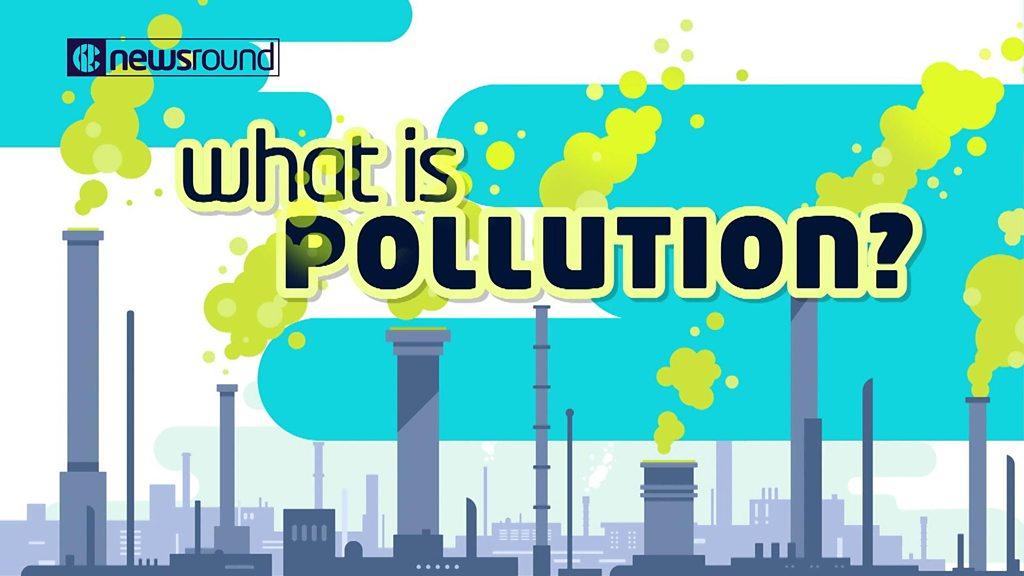Severe pollution in New Delhi covers city in dense smog
- Published
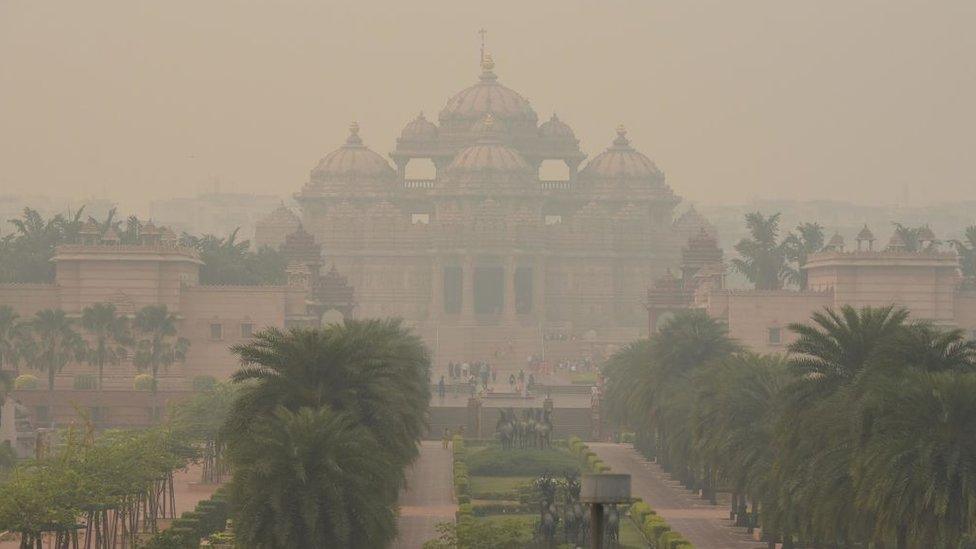
Thick smog has spread throughout major cities in India, including the capital city of New Delhi as temperatures drop. The Akshardhanmk Temple featured in this picture is hard to see through the dense polluted air, even when the camera is positioned just a few hundred metres away.
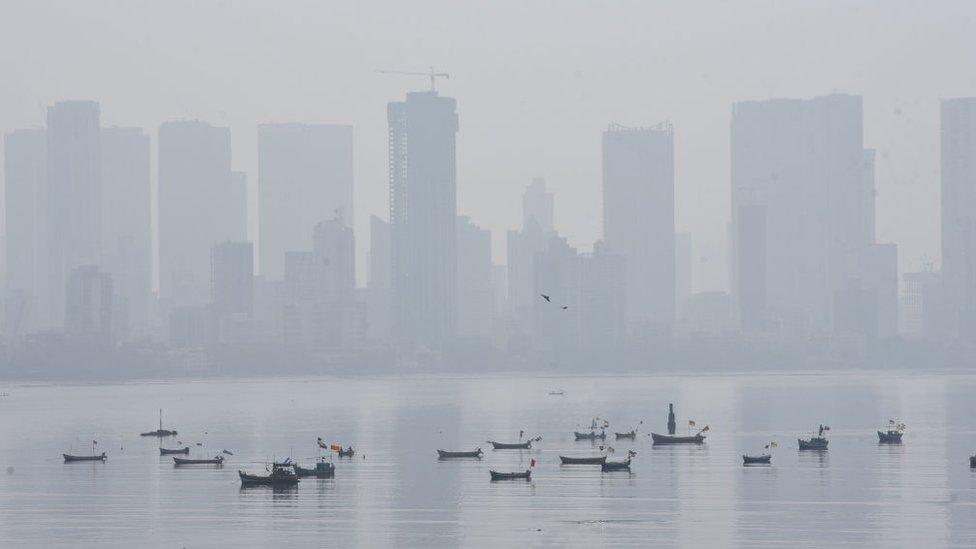
In Mumbai, to the west of India, smog spreads throughout the city and across the sea where local fishers are working. According to the air quality index IQAir, India has 22 out of the 30 most polluted cities in the world.
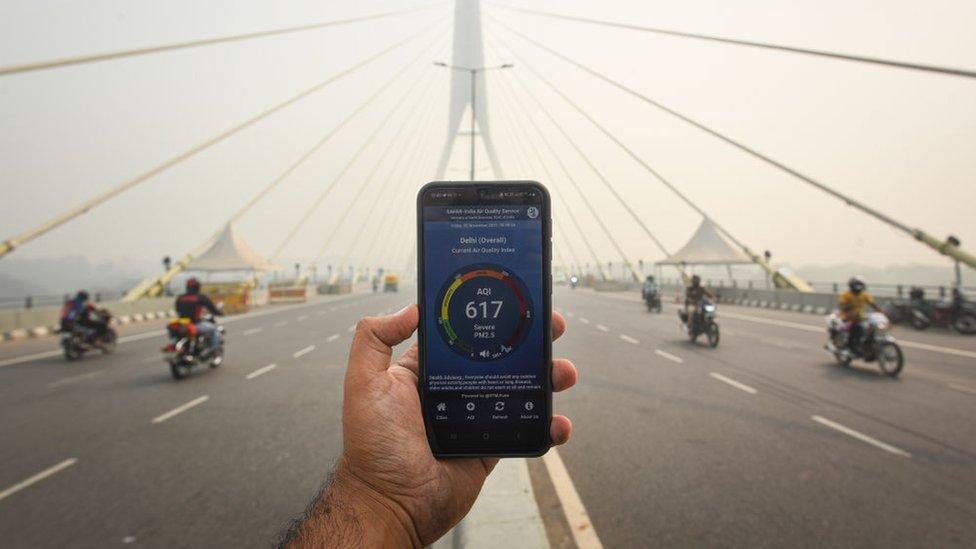
This phone is showing New Delhi's Air Quality Index the morning after Diwali on 5 November. The app shows that the air quality is at 617 which is considered very dangerous. Most of New Delhi's 39 air quality monitoring stations reported pollution levels in the 'severe' category that day, the highest category.
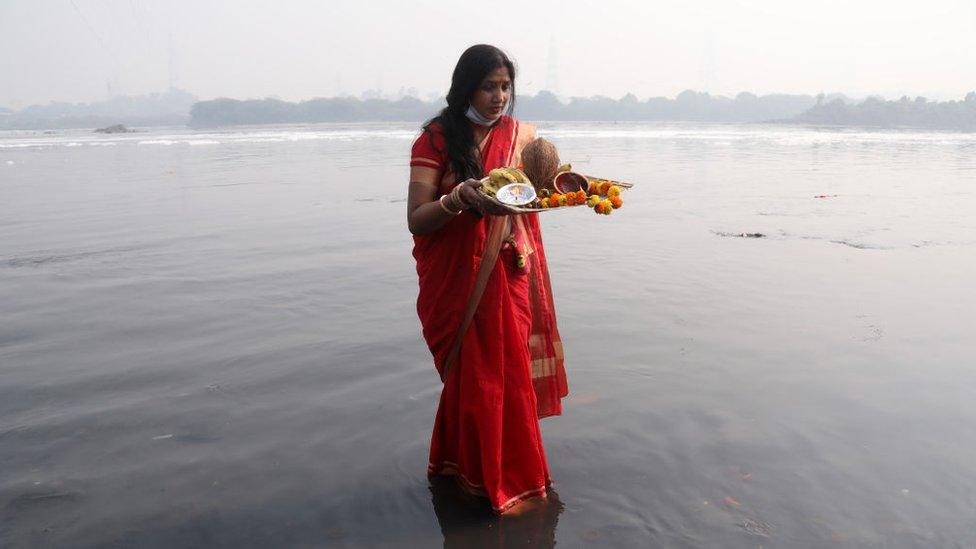
Firework displays celebrating the five day festival of light - Diwali - are thought to have contributed to the poor air quality in some of India's major cities. In this picture, a woman offers prayers in the haze during the Chhath Puja festival at the holy river of Yamuna in New Delhi. The Times of India reported that the river was full of toxic foam due to untreated sewage in the water.
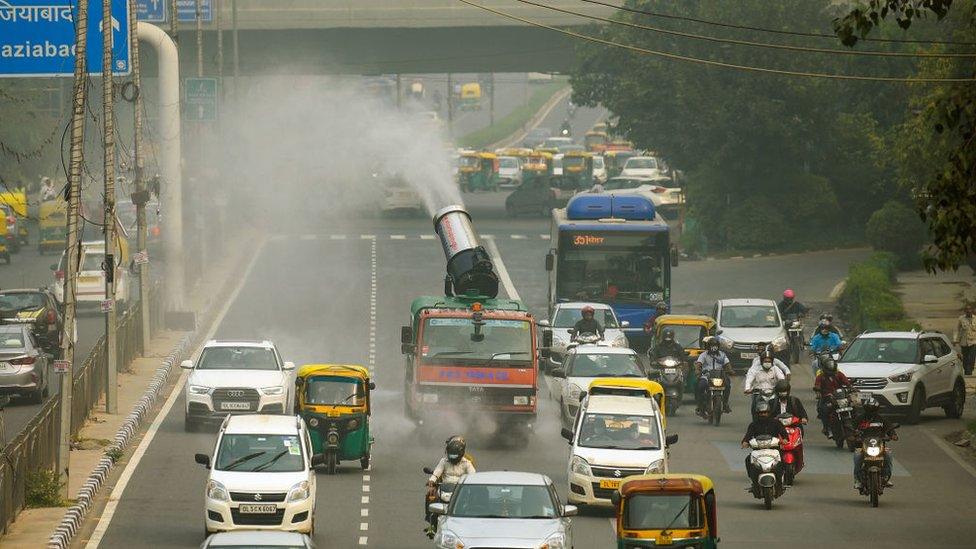
A study by Patralekha Chatterjee published in the medical journal The Lancet suggests that India's pollution kills more than one million people in the country each year. To combat the pollution levels, the government has encouraged the use of anti-smog guns like this one which spread water droplets throughout the air. The water acts like rain which helps pollutants like dust settle towards the ground.
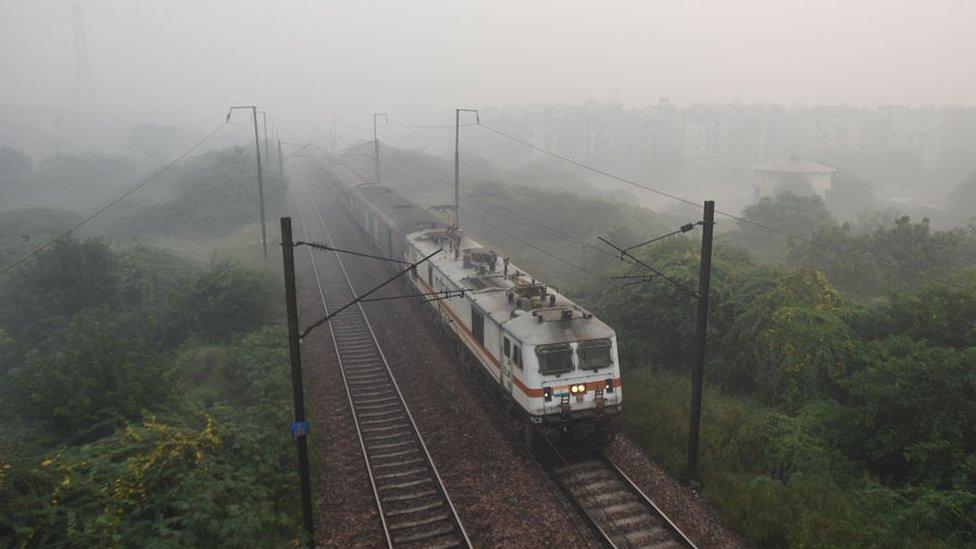
Pollution is a growing issue for India, with lots of different causes. In its major cities and towns, traffic is a huge contributor to the smog seen in these pictures. And as a developing country, India's recent massive growth in manufacturing and building has also damaged the environment and air quality.
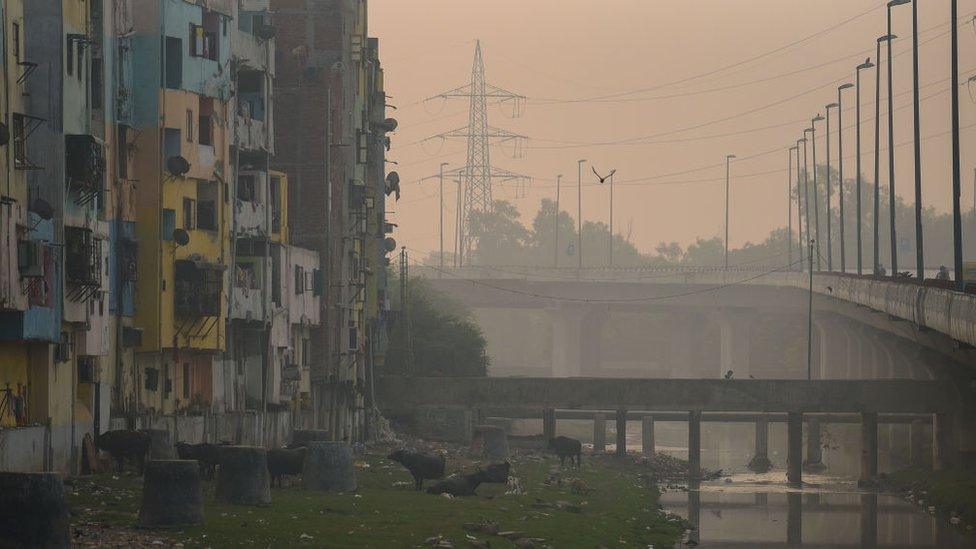
But in more rural and agricultural areas - many farmers still practice the burning of crops to clear their fields which is one of the biggest reasons why India's pollution is so bad. Recently, a social enterprise called Takachar was awarded a £1 million Earthshot Prize for developing a machine which converts farm waste to fuel and fertiliser. It's hoped that more farmers will use this machine in the future to combat the burning of crops.
- Published18 October 2021

- Published7 February 2019
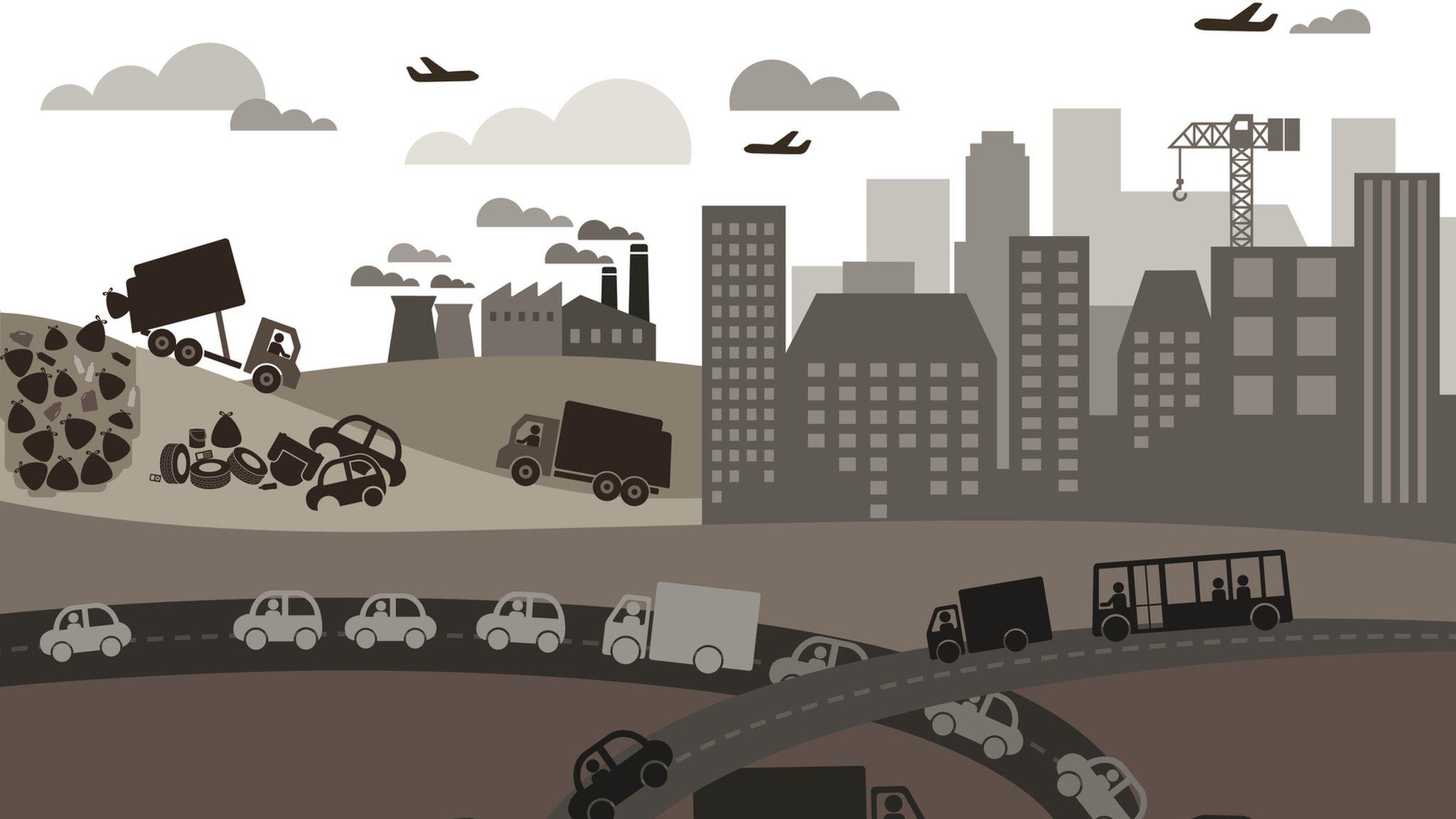
- Published30 April 2020
